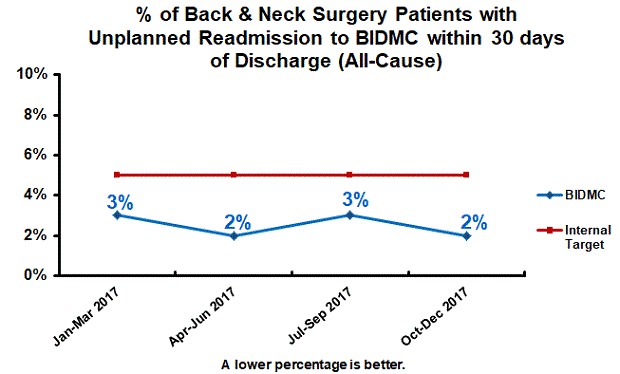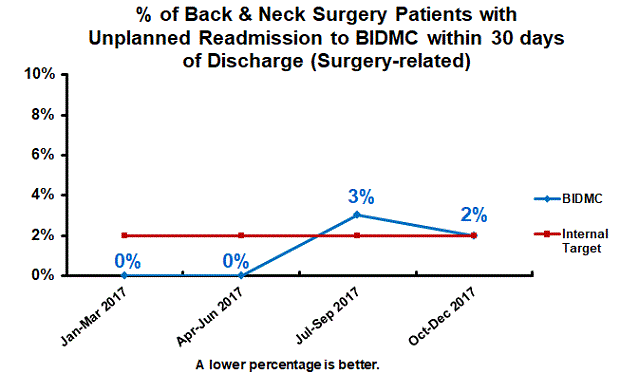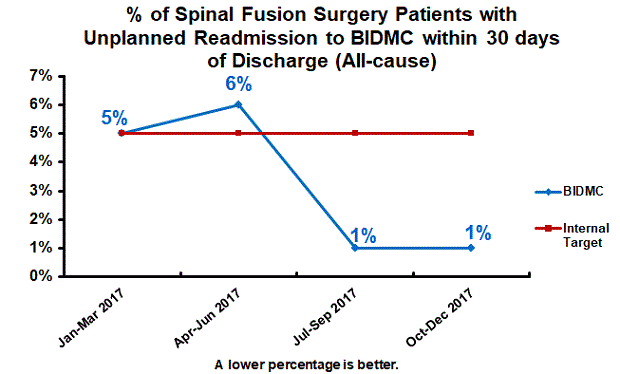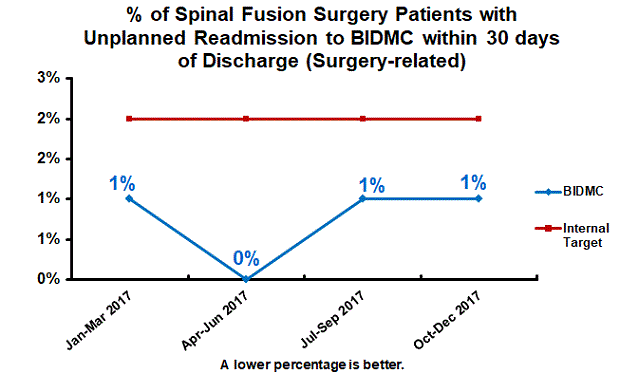Spine Center Unplanned Readmissions
Unplanned Readmissions
What are we measuring?
The percentage of back, neck, and spinal fusion surgery patients that had an unplanned readmission to BIDMC within 30 days of initial discharge. The data is presented to show unplanned readmissions for all causes, as well as readmissions due to a condition related to the original surgery.Why is this important?
We continuously strive to deliver the best outcomes for our patients admitted to BIDMC for spine surgery. 30-day Unplanned Readmission rates is a measure that relates to the quality of care provided to patients while undergoing surgery, while hospitalized, and in the transition of care after surgery. Our goal is to prevent avoidable readmissions.What is our most recent performance and trend?




What we are doing to improve?
Readmission and reoperations are very frustrating experiences for spine surgery patients. Among the most common reasons for reoperation or readmission is a surgical site infection. At BIDMC, we are committed to reducing surgical site infections and have implemented a core set of specific actions to eliminate them. When taken together, these specific actions (called a "bundle") typically result in consistently better outcomes than if each of these actions were performed individually.Actions in the infection prevention "bundle" include:
- Appropriate use of antibiotics just prior to and during surgery.
- Appropriate hair removal at the surgical site using clippers.
- Use of antimicrobial washes and preps before the surgery by the patients.
- Use of antiseptic scrub in the operating room, immediately before the surgery.
Last Updated: April 2018
